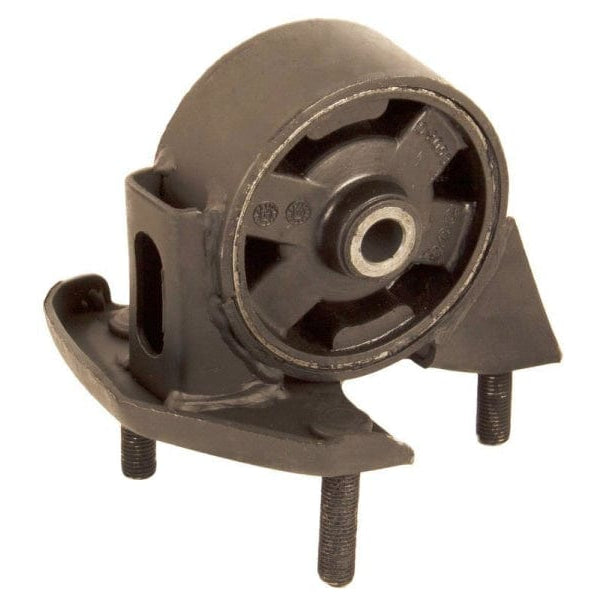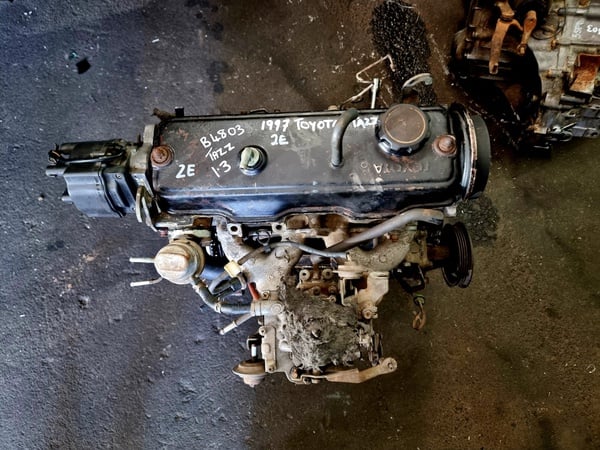Check Out the most up to date Patterns in Engine Innovation Through Tazz
In the swiftly developing landscape of vehicle technology, Tazz stands at the forefront, highlighting considerable developments in engine systems that focus on both technology and sustainability. From hybrid engines that enhance fuel performance to the appearance of hydrogen fuel cells, the trends forming contemporary powertrains are not only improving efficiency yet additionally addressing important ecological challenges.
Hybrid Engine Innovations
Hybrid engine developments represent a critical shift in automotive technology, integrating the benefits of internal combustion engines with electric propulsion systems. This integration not only enhances fuel effectiveness however likewise decreases discharges, meeting increasingly strict environmental policies. By using both energy sources, hybrid engines can optimize performance, supplying power when required while saving gas throughout much less demanding driving problems.
Current improvements in hybrid technology include improvements in battery performance and regenerative stopping systems. These advancements enable for greater power healing during slowdown, which can be redirected to assist in velocity or power accessory systems. Producers are concentrating on lightweight products and small layouts to optimize the effectiveness of crossbreed powertrains.
The advancement of plug-in crossbreeds has additionally expanded the market, making it possible for motorists to bill their automobiles making use of conventional electric outlets. This function usually permits for considerable all-electric array, further reducing dependancy on conventional gas. tazz. As the automotive industry continues to advance, hybrid engine innovations are expected to play an essential function in linking the gap in between conventional cars and totally electrical models, offering a transitional option that satisfies diverse customer demands and preferences
Advancements in Electric Powertrains
The vehicle landscape is swiftly evolving, with electric powertrains arising as a leading force in lasting transport. Breakthroughs in electrical vehicle (EV) technology are considerably improving efficiency, efficiency, and customer experience. Secret advancements include renovations in battery chemistry, which have increased power thickness, minimized charging times, and extended overall battery life.
Solid-state batteries, as an example, assure to change the marketplace by supplying higher safety and efficiency contrasted to standard lithium-ion cells. Advancements in regenerative stopping systems are allowing vehicles to recuperate energy throughout deceleration, adding to overall effectiveness.
Along with battery modern technology, electric motor layouts are ending up being more advanced. Innovations such as incorporated motors and advanced thermal monitoring systems are assisting to maximize power delivery and lower weight, ultimately boosting automobile dynamics.

Jointly, these developments highlight the commitment to transition in the direction of cleaner, a lot more effective transportation remedies, placing electric powertrains at the forefront of auto technology.
The Increase of Hydrogen Fuel Cells
Significantly, hydrogen fuel cells are gaining traction as a viable choice to standard internal burning engines and battery electric lorries. This innovation harnesses the chemical power kept in hydrogen, converting it right into electrical power through an electrochemical response with oxygen. The primary by-product of this procedure is water, making hydrogen fuel cells an environmentally pleasant choice with absolutely no discharges at the tailpipe.

Car manufacturers are increasingly spending in hydrogen fuel cell innovation, recognizing its capacity for long-range applications and quick refueling abilities that measure up to standard fuels. In addition, industries such as sturdy transport and public transit are specifically well-suited for hydrogen fuel cells, where battery electrical solutions may fail due to weight and array limitations.
As research study and financial investment remain to expand, hydrogen fuel cells are positioned to play a substantial role in the future landscape of clean transport and power solutions.
Enhancements in Internal Combustion Engines
Developments in interior combustion engine (ICE) technology are transforming traditional cars to satisfy modern environmental criteria and efficiency expectations. Direct gas shot, for circumstances, allows for better atomization of fuel, leading to even more full combustion and enhanced power output.
In addition, turbocharging has actually acquired prominence, permitting smaller sized engines to deliver greater efficiency without the weight of bigger engines - tazz. This innovation not only enhances effectiveness but additionally adds to lower gas usage. Variable valve timing systems are additionally being improved, making it possible for engines to adapt to various driving problems for Our site enhanced torque and responsiveness
Moreover, using lightweight products in engine building is becoming standard, more improving gas effectiveness by lowering general vehicle weight. Engine control systems (ECUs) are increasingly advanced, making it possible for real-time modifications that maximize efficiency and discharges.
These improvements collectively symbolize a pivotal shift in ICE modern technology, aligning with international sustainability goals while still offering the efficiency drivers expect from their cars. As the market advances, these improvements continue to form the future of traditional automobile design.
Future Fads in Engine Efficiency
Considerable advancements in engine efficiency are expected as suppliers concentrate on integrating advanced innovations to fulfill stringent environmental policies and customer needs. The change towards electrification, hybrid systems, and visit our website alternative fuels is reshaping the automobile landscape, driving advancements that improve gas economic situation and lower emissions.
One of the essential patterns is the application of sophisticated materials and producing techniques. High-strength alloys and lightweight compounds add to reduced car weight, thus improving overall performance. In addition, the fostering of turbocharging and variable valve timing innovations permits improved power result from smaller sized engines, better boosting gas economic climate.

Verdict
Finally, the exploration of engine modern technology reveals considerable improvements that focus on sustainability and performance. Innovations in hybrid engine systems, electric powertrains, and hydrogen fuel cells demonstrate a commitment to decreasing discharges while improving performance. Improvements in internal combustion engines and an emphasis on light-weight products add to overall engine effectiveness. As the automobile industry remains to evolve, these fads will certainly play a critical duty in forming a cleaner and even more sustainable future for transportation.
From crossbreed engines that enhance fuel performance to the introduction of hydrogen fuel cells, the fads forming modern powertrains are not just improving performance yet likewise addressing essential ecological difficulties.Hybrid engine advancements represent a crucial shift in automotive innovation, combining the advantages of internal burning engines with electrical propulsion systems.Furthermore, turbocharging has actually gotten importance, permitting smaller engines to supply higher efficiency without the weight of larger engines. Furthermore, the fostering of turbocharging and variable valve timing modern technologies allows for enhanced power result from smaller engines, additionally enhancing gas economy.
Enhancements in inner combustion engines and a focus on light-weight materials contribute to general engine performance.
Comments on “Toyota Tazz: A Smart Investment for Those Seeking Low-Cost Maintenance”